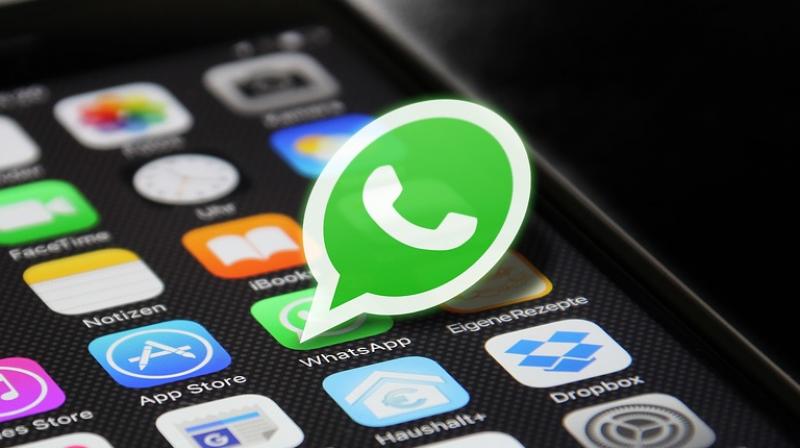WhatsApp payments
March 14, 2018 | Expert Insights

Facebook-owned WhatsApp is reportedly set to enter India’s expanding e-commerce market with its WhatsApp Payment feature. Vijay Shekhar Sharma, the founder of Paytm, one of India’s largest digital transaction gateways, has taken issue with WhatsApp’s latest feature, which is still under trial.
Background
Established in 2009, WhatsApp Messenger is a free mobile app and multimedia instant messaging service. It was founded by Jan Koum and Brian Acton and is headquartered in California. The app’s features include text messaging, voice calls, video calls, and media sharing (including video, audio, images, documents, and location sharing). The messaging service was acquired by Facebook for $19 billion in February 2014.
WhatsApp’s largest user base is India, where it crossed 200 million monthly active users in 2017. As of February 2018, the app had over 1.5 billion users worldwide. According to the Financial Times, WhatsApp “has done to SMS on mobile phones what Skype did to international calling on landlines." WhatsApp is well known among cryptographers for ensuring secure communication for its users and for providing end-to-end encryption.
Paytm is India’s leading digital payment and e-commerce company, founded in 2010. It has over 200 million registered users. In May 2017, Paytm became the third company to establish a payment bank, after receiving approval from the Reserve Bank of India. Payment banks reach customers primarily through mobile phones, rather than traditional bank branches. These banks cannot grant loans but can accept limited deposits.
In 2015, Ant Financial Services, an affiliate of Chinese e-commerce giant Alibaba, bought a 25% stake in Paytm’s parent company, One97 Communications. In 2017, Alibaba and its affiliates bought a majority share in Paytm E-commerce Private Limited. Japan’s Softbank also holds a stake in the company. However, Alibaba does not have a direct shareholding in the Paytm payment bank.
Facebook and Google are both reportedly developing social-media linked payments. China has already set a precedent for payments linked to social media. Alibaba’s Alipay was the most popular service in China, owning 80% of the market share, with approximately half a billion users. However, with the entry of Tencent’s WeChat Pay feature, Alipay’s share dropped from 80% to 53%. WeChat is a multimedia instant messaging app that has over one billion monthly users.
Analysis
The 2016 Indian demonetisation, which banned 86% of the notes in circulation, resulted in a surge of digital payments in India. Paytm was a huge beneficiary of this move. According to the BBC, the app saw a “700% increase in overall traffic and a 300% surge in app downloads”. Today, India’s mobile wallet market is worth approximately $400 billion.
WhatsApp is the latest name in the list of mobile wallets in India. The company has added monetary transaction to the range of features it provides. In a beta version of the app available to a number of Indian users, the system uses Unified Payment Interface (UPI) to allow customers to transfer funds through UPI-linked bank accounts. The feature does not require users to store money in a digital wallet.
Paytm founder and CEO Vijay Sharma has taken issue with WhatsApp’s payment platform and accused WhatsApp owner Facebook of manipulating the UPI system. “We are just seeking an equal treatment. WhatsApp payment does not ask for log-in password, which is a huge security risk for consumers,” Sharma said. Sharma has previously been highly critical of Facebook’s Free Basics internet service app, which he claimed violated net neutrality. “Facebook tries to dominate the market - they go in with a mindset that they can lock the users in their systems,” Paytm vice president Deepak Abbot told the BBC.
However, other mobile payment companies have offered more positive responses. The co-founder of Mobikwick, Bipin Preet Singh told the BBC, "Currently, the digital payment market penetration is only 5 to 10% percent, so entry of a new player is a big positive.”
Former CEO of Freecharge Kunal Shah, said that companies threatened by Whatsapp payments would “try to pull it down”. “It’s hard to win on merit against network effects of Whatsapp,” he tweeted.
Analysts have drawn parallels to the Alibaba- WeChat rivalry in China. Satish Meena with Forrester Inc. told Bloomberg that WhatsApp could end up “cannibalizing other user’s wallets”. “Its base of 200 million users, in daily active usage - that’s about 20 times higher than Paytm’s, and the fact that Indian users spend a lot more time on WhatsApp than even on parent Facebook has huge advantages,” said Meena.
Assessment
Our assessment is that while Paytm has a widespread and highly established user base, WhatsApp’s new feature may shake up the Indian digital payment market. We believe that the feature would introduce a number of new users to mobile transactions, taking India a step closer to a “cashless society”. India’s internet user base is growing due to the proliferation of cheap mobile technology. However, large portions of the population either do not have access to mobile data, or simply prefer physical transactions.








Comments